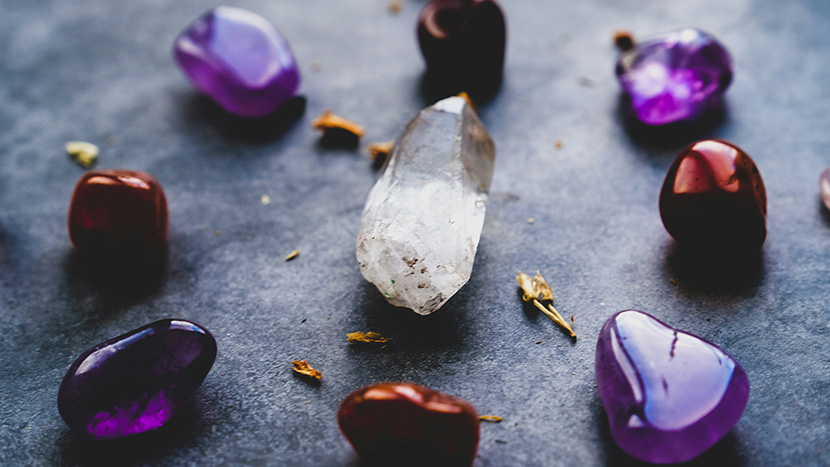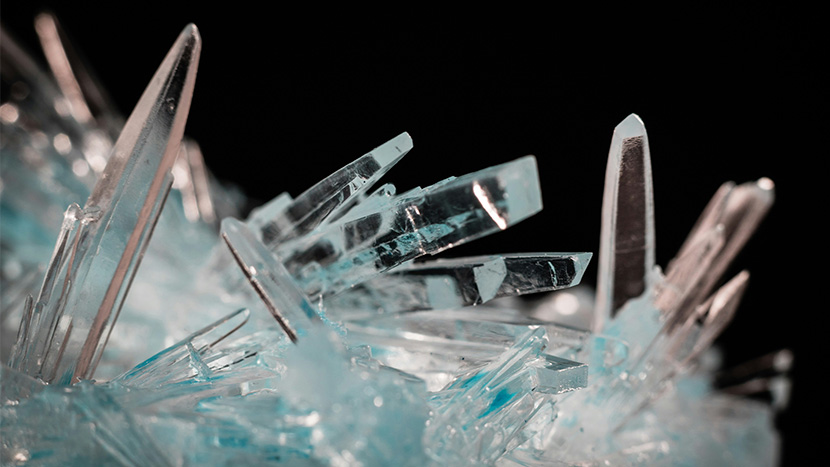The Science Behind the Allure of Crystals: Why Do People Believe in Crystal Healing?
A lot of people interested in alternative medicine want to know if crystals have actual healing properties. With so many people swearing by their effects, it’s a valid question. Long story short, the jury is still out on whether or not crystals have any physical healing properties, though historical evidence suggests it has been practiced all around the world for many, many years. It’s an interesting area of investigation, but science as a community has yet to prove the power of crystals when it comes to healing.
Why Are We Dazzled by Crystals?
Perhaps the more pertinent question, therefore, seems to be this: why do people believe in the healing power of crystals? We could tweak this and ask why people “want” to believe, but the sentiment remains the same. On a superficial level, there are clues all around us. Crystals have an allure simply because they speak to our desire for precious items. Specifically, there’s a symbolism to crystals that calls out to use.
That’s why jewelers base their creations around precious stones. Go into any jewelry store, and you’ll see how the bright lights refract through the stones to catch our eye. This, combined with the cultural value of precious stones, makes crystal-laced jewelry appealing. In fact, this allure extends to almost anything laced with crystals. For example, visit https://bingo.paddypower.com/, and you’ll see games called the Crystal Room and the Diamond Room. Aside from the fact that bingo is fun and there are chances to win cash prizes, these rooms are more popular than others because precious stones are alluring. People enjoy that, which might be why some are also willing to believe crystals have healing powers.
Another answer may also lie in a book called The Crystal Academy of Advanced Healing Arts. Written by Katrina Raphaell and published in 1986, the book was seen by Carl Sagan as the rebirth of the crystal healing trend. Indeed, as you’ll discover when you visit https://webcrystalacademy.com/, Raphaell pioneered the concept of “placing crystals and stones on the chakra centers of the body.” Delving deeper into the allure of crystals, Catherine Albanese categorizes them under the umbrella of metaphysical religion. This is a culture that includes beliefs such as synchronicity (two unconnected events that influence each other).
Again, no literature has found any real impact of crystals on health, but this doesn’t mean they have no impact whatsoever. As just one thought, the act of meditating and focus on mental health could indeed help people feel better. Despite the potential reasons, science still can not back these claims.
Are Electrical Impulses the Secret to Crystal Healing?
Perhaps the closest scientific justification for crystals possessing healing properties is the field of piezoelectricity (see video above). As defined by https://onscale.com/, the piezoelectric effect occurs when pressure is applied to a piezoelectric material, such as ceramics, bone, and crystals. The pressure generates a voltage. Healers believe this effect occurs when crystals are placed on certain parts of the body, and that the voltage stimulates certain electrical impulses in the body to promote healing.
It sounds logical. Crystals can generate a voltage under certain conditions. Therefore, if we believe electrical currents have the power to realign vibrations in the body caused by injuries, crystals can solve the problem. However, once again, scientists haven’t been able to demonstrate this effect in any rigorous tests.
All in all
UNtil now science can’t back the healing properties off crystals. Supporters of crystal healing will say that we simply don’t or can’t understand the process in which crystals heal people – which is why there is no empirical evidence for it. Detractors will say that scientists can’t prove it because it doesn’t exist. Even if it’s a case of taking 2+2 and getting 300, some people love the mystical allure of crystal healing. That’s why it will remain a practice outside traditional medicine, regardless of whether there is scientific evidence for it.


































































































